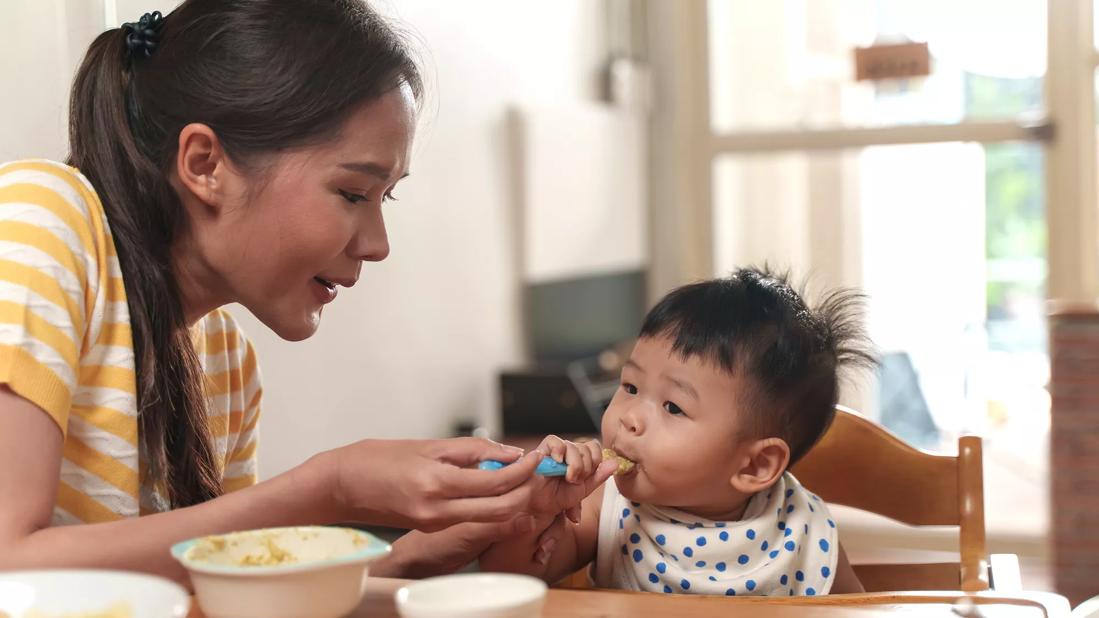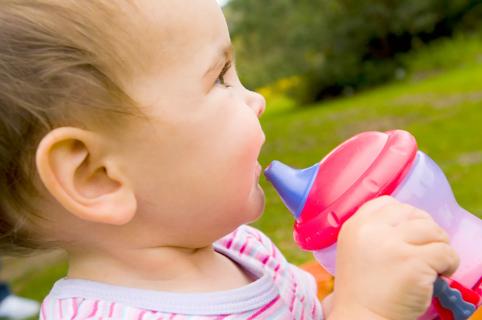In babies under 12 months, honey may cause a serious illness called infant botulism

For adults, honey is a delicious natural sweetener and a suitable stand-in for sugar in mugs of tea, homemade baked goods and bowls of morning oatmeal. But did you know that honey isn’t safe to give to children under the age of 1?
Advertisement
Cleveland Clinic is a non-profit academic medical center. Advertising on our site helps support our mission. We do not endorse non-Cleveland Clinic products or services. Policy
Pediatrician Kimberly Churbock, MD, explains why honey isn’t safe for babies, the risks associated with it and when it is safe to introduce honey into their diets.
Honey may contain spores from the bacterium Clostridium botulinum. These spores can cause infant botulism, a type of severe food poisoning that produces toxins that affect nerve function and can lead to skeletal muscle paralysis.
“Though this isn’t an issue for adults, who have more mature digestive tracts, it can cause serious health problems in babies,” Dr. Churbock warns. Symptoms of botulism in infants may include:
It’s important to note that botulism is rare, with an average of 110 cases in the U.S. each year. But when it does occur, it can be life-threatening.
If your baby has eaten honey and you begin to notice any of these symptoms, contact your healthcare provider right away.
"If they’re experiencing significant or severe symptoms, call 911 or seek immediate medical evaluation in the emergency room," Dr. Churbock stresses.
If you typically use honey instead of sugar in your baked goods, you may be curious whether the heat renders it safe for your baby to eat. But don’t risk it.
Advertisement
“I generally recommend avoiding all honey, both processed and raw, for babies, even as an ingredient in baked and processed foods,” Dr. Churbock advises. “This is because Clostridium botulinum spores are relatively heat-resistant.”
In simpler terms: Nope. No honey for babies, no matter what.
After your child’s first birthday, it’s considered safe to start introducing them to honey. Most cases of infant botulism occur in babies under the age of six months, so waiting until they’re 12 months old provides a buffer of time that allows their digestive tracts to more fully mature.
That said, your baby doesn’t need honey. In general, it’s best to avoid giving babies foods with added sugars and sweeteners.
“They’re unnecessary and may lead to excessive weight gain and tooth decay,” Dr. Churbock notes. “Plus, babies already have ample opportunities to experience sweet flavors found naturally in foods like fruits.”
The American Academy of Pediatrics advises not giving foods with added sugar to kids under age 2. So, cut up some strawberries or grapes for your little one instead, and consider this an excuse to keep those baked goods to yourself!
Once your child is old enough to try honey, you can introduce them to it the same way you would any other condiment — in a small amount, added to some other food they already enjoy.
You may want to:
As a plant-based, natural sweetener with some antioxidants and anti-inflammatory properties, honey can be a better choice than regular sugar. But it’s still sugar. Keep it out of your child’s diet in the first year of their life — and from there, use it sparingly to make life slightly sweeter.
Advertisement
Learn more about our editorial process.
Advertisement

Yes, you can have honey if you’re breastfeeding — but never feed it directly to babies under 1

Regurgitation of breastmilk or formula is common, but it could be a sign of GERD in some cases

In babies under 12 months old, cow’s milk has been associated with gastrointestinal bleeding

No juice until your child is 1 year old — and even then, they shouldn’t have much, if any

Ideally, you want your toddler to be drinking from a ‘big kid cup’ by age 2

Letting your baby feed themself foods the whole family enjoys has its benefits — but stick to softer foods and follow safe-eating guidelines

Levels are generally low, but there are ways to minimize potential health risks

Slowly introducing cow’s milk (or soy milk) can help your child make the change

If you’re feeling short of breath, sleep can be tough — propping yourself up or sleeping on your side may help

If you fear the unknown or find yourself needing reassurance often, you may identify with this attachment style

If you’re looking to boost your gut health, it’s better to get fiber from whole foods